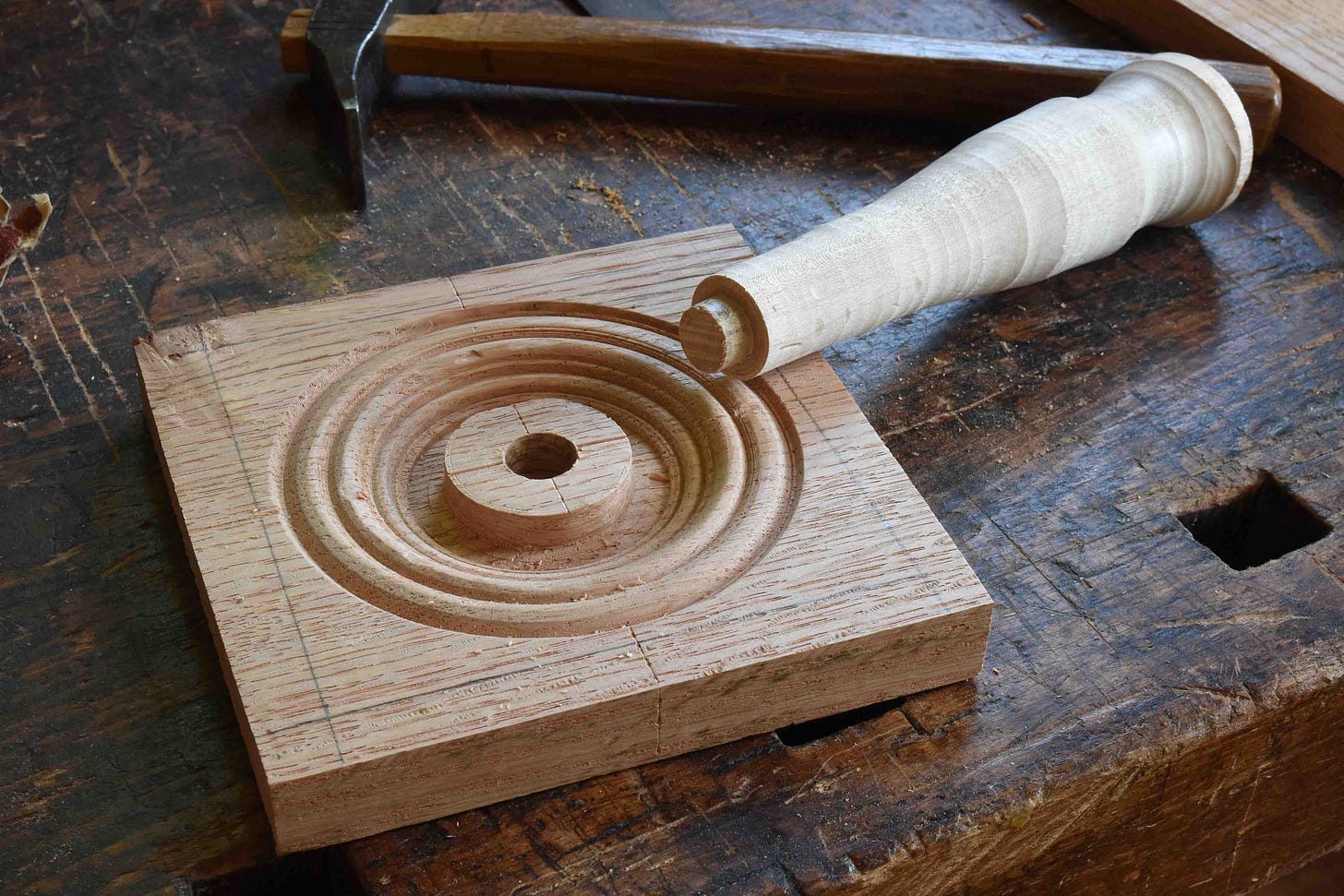Today I started turning some arch sections for the cupboard’s side panels. Eventually I need 12 quarter-segments to assemble the applied arches. So technically turning 3 of these arches would provide all the parts I need. Well, that’s in an ideal world. Or a world in which I’m a better turner than I am.
First of all - I do not know how the joiners & turners who made the original cupboards turned their arch segments. Don’t know what kind of lathe they used - pole, treadle or great wheel; how they attached the workpiece in the lathe, etc. Everything that follows is just how I figured out to get the job done simply with simple tools.
Mine are turned on a pole lathe - easy to build, easy to use. If I was a full-time turner, maybe then it would make sense to build a more complicated treadle/flywheel lathe. But I am an occasional turner. I prepared a blank of red oak - one was 6” square and 3/4” thick. Quartersawn stock. Dry. Found the center, scribed two circles, the outer and inner limits of the arch. Carried the centerpoint around to the back of the blank. Hit that with a center punch. Then bored a 5/8” hole in the front, about 3/8” deep. Absolutely critical that this hole is bored perpendicular to the flat plane of the arch blank. I had earlier made a mandrel - a piece of maple about 1 1/2” in diameter, maybe 6” long. Tapered down to maybe 1” diameter at one end, then turned a tight 5/8” diameter tenon about 3/8” long. (top photo).
Next up I knock that mandrel tight into hole bored in the blank. Then wrap the cord around the mandrel and mount the blank/mandrel into the lathe. Tighten the poppet, crank the screw at the other end to make sure everything is secure. I made a wooden tool rest that’s perpendicular to the lathe bed. It’s fastened in place with a wooden block that falls down between the beds of the lathe, secured with a wedge, like the poppets of the lathe. A spin or two to check that everything’s ready. Then time to dive in.
Keep reading with a 7-day free trial
Subscribe to Follansbee's Substack to keep reading this post and get 7 days of free access to the full post archives.





